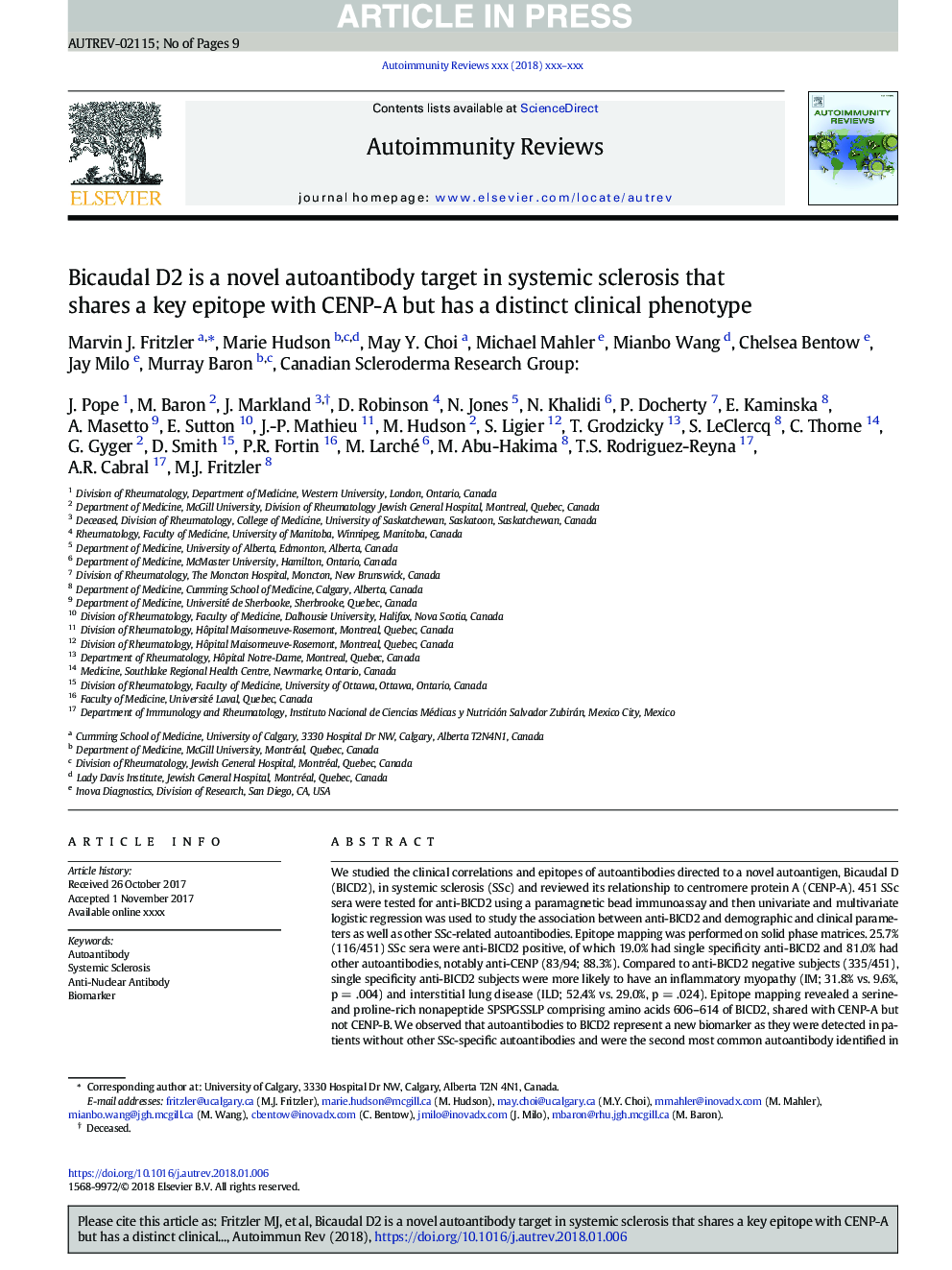| Article ID | Journal | Published Year | Pages | File Type |
|---|---|---|---|---|
| 8736450 | Autoimmunity Reviews | 2018 | 9 Pages |
Abstract
We studied the clinical correlations and epitopes of autoantibodies directed to a novel autoantigen, Bicaudal D (BICD2), in systemic sclerosis (SSc) and reviewed its relationship to centromere protein A (CENP-A). 451 SSc sera were tested for anti-BICD2 using a paramagnetic bead immunoassay and then univariate and multivariate logistic regression was used to study the association between anti-BICD2 and demographic and clinical parameters as well as other SSc-related autoantibodies. Epitope mapping was performed on solid phase matrices. 25.7% (116/451) SSc sera were anti-BICD2 positive, of which 19.0% had single specificity anti-BICD2 and 81.0% had other autoantibodies, notably anti-CENP (83/94; 88.3%). Compared to anti-BICD2 negative subjects (335/451), single specificity anti-BICD2 subjects were more likely to have an inflammatory myopathy (IM; 31.8% vs. 9.6%, p = .004) and interstitial lung disease (ILD; 52.4% vs. 29.0%, p = .024). Epitope mapping revealed a serine- and proline-rich nonapeptide SPSPGSSLP comprising amino acids 606-614 of BICD2, shared with CENP-A but not CENP-B. We observed that autoantibodies to BICD2 represent a new biomarker as they were detected in patients without other SSc-specific autoantibodies and were the second most common autoantibody identified in this SSc cohort. Our data indicate that the major cross-reactive epitope is associated with anti-CENP-A but, unlike anti-CENP, single specificity anti-BICD2 antibodies associate with ILD and IM.
Related Topics
Life Sciences
Immunology and Microbiology
Immunology
Authors
Marvin J. Fritzler, Marie Hudson, May Y. Choi, Michael Mahler, Mianbo Wang, Chelsea Bentow, Jay Milo, Murray Baron,
